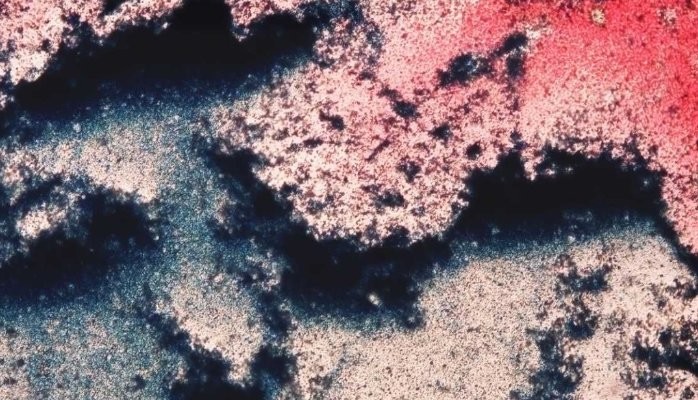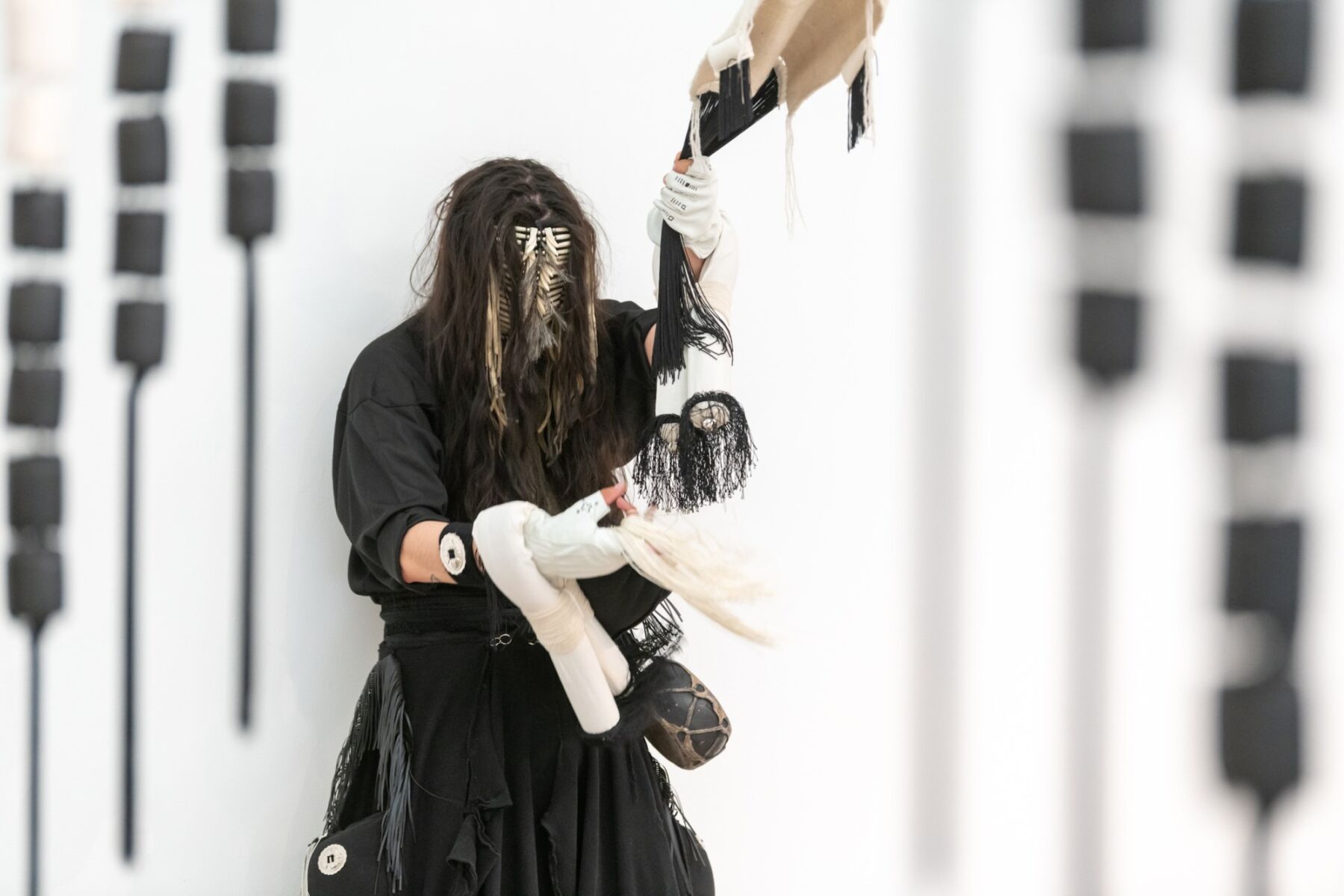Words by Meritxell Rosell
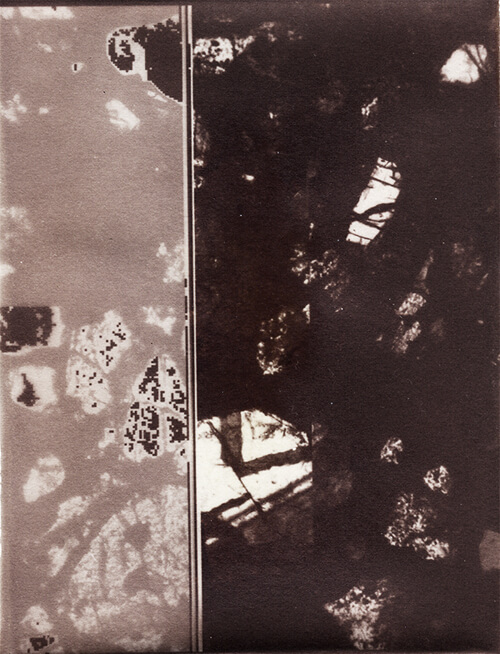
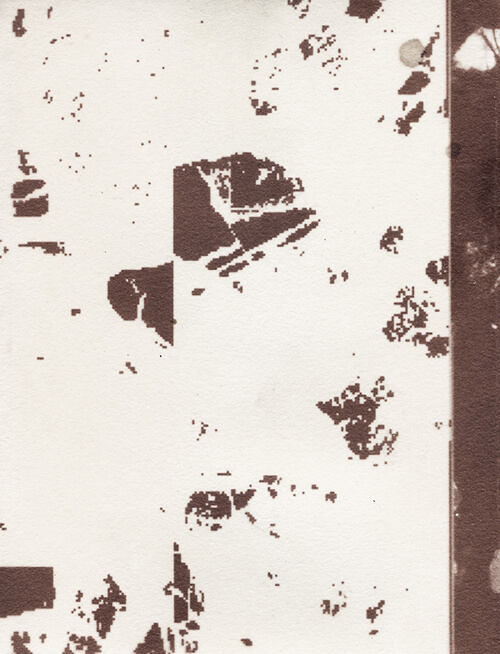
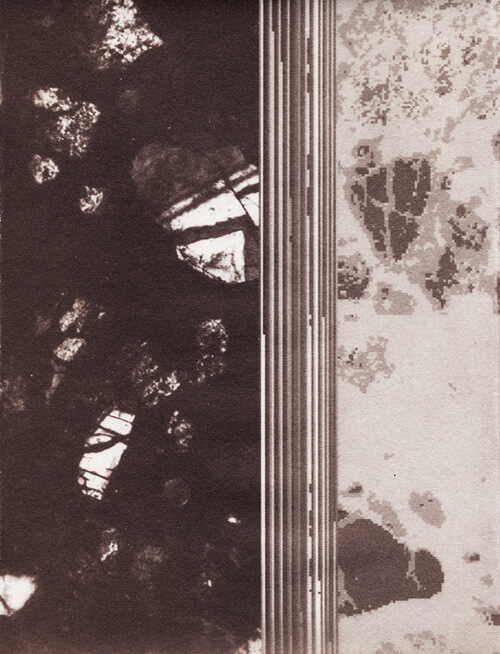
Jaden J. A. Hastings —a London-based scientist and artist— uses the interplay between art and science to explore new spaces from where to reflect on humanness, nature and the cosmos with a touching epistemological focus.
Holding a lengthy academic scientific career, Hastings uses research laboratory methods and a broad array of materials and artistic means (from glass and metals to her own blood, to bioinformatics and cell biology) to convey human existence to nature and the universe.
With residences at SymbioticA, Australia (Corpus Grandiferum I and II) and in Goa (A particular light) in India and fruitful collaborations with other artists like Stelarc at the Alternate Anatomies Lab (Marking Time) and Amy Congdon (DeCellular) as well as with prolonged research projects (The matter of Humanness) she’s created a soulful interstice for reflection on human cognition and the persistence of corporeal existence through space and time.
Hastings’s work somehow feels as if grasping with the eyes of an ancient Greece philosopher, watching the stars from a hill on a summer night on a remote island, trying to understand the entire celestial eternity above and every single part of humanness inside.
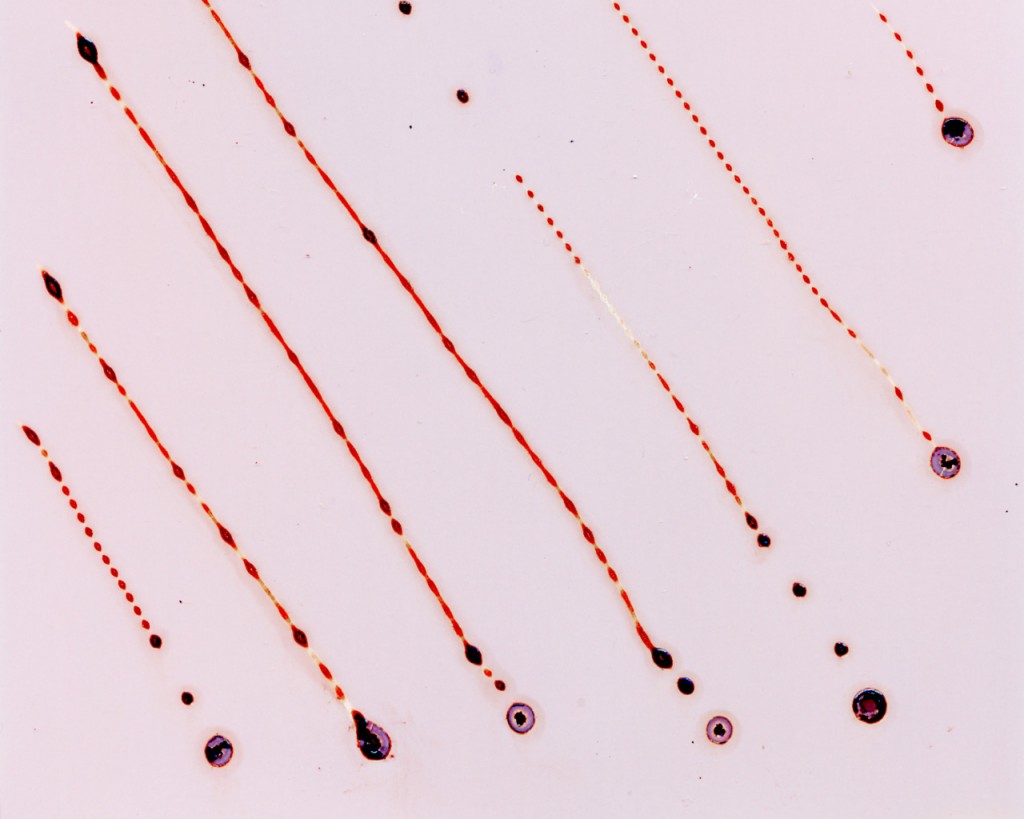
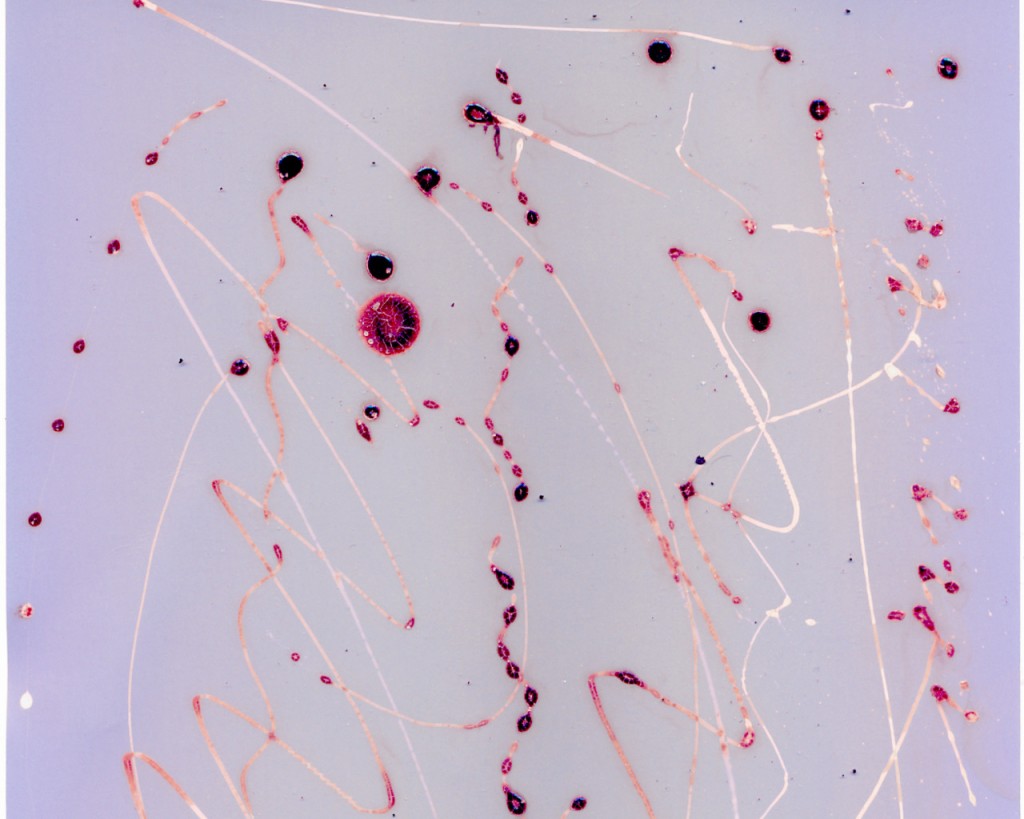
What is more important: to take or not to take yourself too seriously in order to be creative?
Perhaps it is because I concur with the Socratic axim (to paraphrase) “true wisdom is knowing that you know nothing” that I prefer not to take myself too seriously. Though I may appear to be a chronic academic, which is really a manifestation of my insatiable curiosity, I also recognise both the essence of knowledge and my ability to know, are axiomatically constrained. Rather, I take my creative practice seriously—conceptually, technically, ethically—in the hope I might discover something new that is worth knowing.
What is your chief enemy of creativity?
By far, the single force that can most affect my creative work is a distraction. When my mind finally forms an experiment worth attempting, I need to work at it diligently, and for as long as possible, before that moment of suspended time collapses again.
Often my experiments are planned, thoroughly and far in advance, to help me create that moment and space for creative exploration toward a specific aim.
What’s your favourite time of the day?
If it were at all possible, I would live my life entirely between the hours of 3pm and 7am—just before sunset and just after sunrise. To work under the night sky and constantly be reminded of the vastness of the Universe, and the preciousness of life, would be spectacular.
For me, it is an incredibly meditative, and often productive, time of day as I am mostly free of the distractions of everyday life. Long overnight flights, I find, also have this effect.
Do you consider yourself an introvert or an extrovert?
It may shock many of those who have met me that I am incredibly introverted. When the situation requires, I can muster an extroverted persona, but I am much more at ease in a state of isolated contemplation or a pensive tête-à-tête.
What is the worst piece of advice you have been given?
Upon reflection, I find it shocking how many times adults have curtailed my interest and advancement in various subjects—from Kindergarten to College—by either deciding (on my behalf) what my academic strengths might be, deciding something is “too challenging,” or that a particular subject is or is not ‘appropriate’ to my course of study.
I am fairly certain I am far from alone in this experience, and marvel at the degree to which we underestimate students’ innate enthusiasm and curiosity, even aptitude for complex (and disparate) concepts. Rather, it should be the practice to allow students to discover their own, self-determined, boundaries. I think Arthur C. Clarke’s Second Law captures this well: “The only way of discovering the limits of the possible is to venture a little way past them into the impossible.”
One for the ride… Who or what was the last person, place or thing that fascinated you?
That boundary of what can possibly be known in the Universe—the cosmological horizon—intrigues me. It is a physical frontier that intrinsically delineates where knowledge of our material existence must end.

